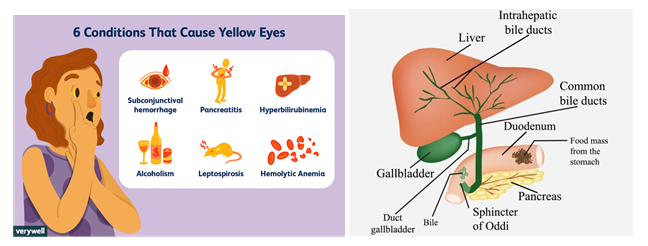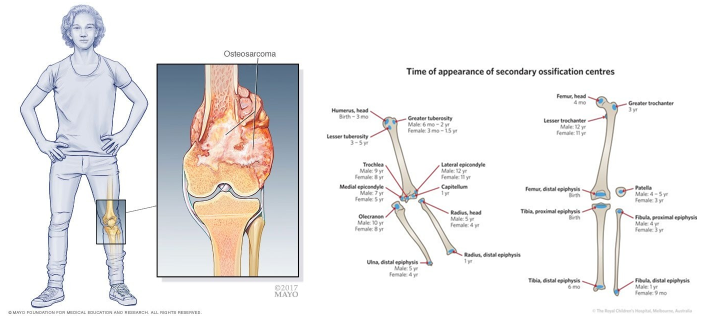The nurse is assessing a 2-week-old male infant in a community health clinic and notes that his sclera appear slightly yellow. Additionally, urine in his diaper appears tea-colored.
This child should receive follow- up assessment for what condition?
Intussusception.
Biliary atresia.
Hirschsprung's disease.
Huntington's disease.
The Correct Answer is B
Biliary atresia is a condition that can cause jaundice in newborns and infants, and it can also lead to tea-colored urine due to the presence of bilirubin in the urine. Infants with biliary atresia require further assessment and treatment, including possible surgery, to prevent liver damage and other complications.
A. Intussusception is a condition in which a part of the intestine folds into itself, causing an obstruction, but it does not typically present with jaundice or tea-colored urine.
C. Hirschsprung's disease is a congenital condition that affects the large intestine and can cause bowel obstruction, but it also does not typically present with jaundice or tea-colored urine.
D. Huntington's disease is a genetic neurological disorder that typically does not present in infants and does not cause jaundice or tea-colored urine.

Nursing Test Bank
Naxlex Comprehensive Predictor Exams
Related Questions
Correct Answer is A
Explanation
The adolescent client's symptoms of localized pain, swelling, and tenderness, particularly at night, are suggestive of a malignancy such as osteosarcoma, which is the most common primary bone tumor in children and adolescents.
Radial ossification in the soft tissues is a characteristic finding in osteosarcoma and is indicative of bone production by malignant cells. Other imaging modalities, such as X-rays, computed tomography (CT), and magnetic resonance imaging (MRI), may also reveal osteolytic or osteoblastic lesions in the bone.
Growing pains are a common, benign condition that occur in children and do not typically present with the
symptoms described in the case scenario.
Rhabdomyolysis is a medical emergency that involves the breakdown of skeletal muscle tissue and release of muscle fiber contents into the bloodstream. It can present with muscle pain, swelling, and tenderness, but typically occurs as a result of injury, infection, or drug toxicity.
Hemosiderosis is a rare condition characterized by the accumulation of iron in various tissues, including the liver, spleen, and bone marrow. It may present with symptoms such as fatigue, joint pain, and abdominal pain, but is not typically associated with the symptoms and imaging findings described in the case scenario.
Therefore, the nurse should consider osteosarcoma as the probable cause of the adolescent client's symptoms and imaging findings, and should collaborate with the healthcare team to develop a plan of care for diagnosis and treatment.

Correct Answer is A
Explanation
The boy's reported symptoms may indicate stress or anxiety related to his school experience. By asking the boy to describe a typical day at school, the nurse can gather information about the child's interactions with teachers and peers, academic performance, and any other potential sources of stress. This information can be used to develop an appropriate plan of care that addresses the child's emotional and physical needs.
Comparing vital signs or conducting a neurological assessment may not provide useful information in this case, and counseling the parents to pay more attention to the child is not a recommended intervention without first identifying the underlying cause of the child's symptoms.
Whether you are a student looking to ace your exams or a practicing nurse seeking to enhance your expertise , our nursing education contents will empower you with the confidence and competence to make a difference in the lives of patients and become a respected leader in the healthcare field.
Visit Naxlex, invest in your future and unlock endless possibilities with our unparalleled nursing education contents today
Report Wrong Answer on the Current Question
Do you disagree with the answer? If yes, what is your expected answer? Explain.
Kindly be descriptive with the issue you are facing.
